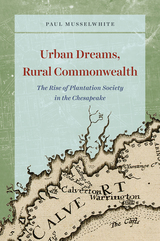2 books by White, Paul

Renaissance Postscripts
Responding to Ovid's Heroides in Sixteenth-Century France
Paul White
The Ohio State University Press, 2009
Ovid’s Heroides, a collection consisting mainly of poetic love letters sent by mythological heroines to their absent lovers, held a particular fascination for Renaissance readers. To understand their responses to these letters, we must ask exactly how and in what contexts those readers first encountered them: were they read in Latin or in the vernacular; as source texts for the learning of grammar and history or as love poetry; as epistolary and rhetorical models or as moral examples?
Renaissance Postscripts: Responding to Ovid’s Heroides in Sixteenth-Century France by Paul White offers an account of the wide variety of responses to the Heroides within the realm of humanist education, in the works of both Latin commentators and French translators, and as an example of a particular mode of imitation. The author examines how humanists shaped the discourse of Ovid’s heroines and heroes to pedagogical ends and analyses even the woodcuts that illustrated various editions. This study traces comparative readings of French translations through a period noted for important shifts in attitudes to the text and to poetic translation in general and offers an important history of the “reply epistle”—a mode of imitation attempted both in Latin and the vernacular. Renaissance Postscripts shows that while the Heroides was a versatile text that could serve a wide range of pedagogical and literary purposes, it was also a text that resisted the attempts of its interpreters to have the final word.
[more]

Urban Dreams, Rural Commonwealth
The Rise of Plantation Society in the Chesapeake
Paul Musselwhite
University of Chicago Press, 2018
The English settlers who staked their claims in the Chesapeake Bay were drawn to it for a variety of reasons. Some sought wealth from the land, while others saw it as a place of trade, a political experiment, or a potential spiritual sanctuary. But like other European colonizers in the Americas, they all aspired to found, organize, and maintain functioning towns—an aspiration that met with varying degrees of success, but mostly failure. Yet this failure became critical to the economy and society that did arise there. As Urban Dreams, Rural Commonwealth reveals, the agrarian plantation society that eventually sprang up around the Chesapeake Bay was not preordained—rather, it was the necessary product of failed attempts to build cities.
Paul Musselwhite details the unsuccessful urban development that defined the region from the seventeenth century through the Civil War, showing how places like Jamestown and Annapolis—despite their small size—were the products of ambitious and cutting-edge experiments in urbanization comparable to those in the largest port cities of the Atlantic world. These experiments, though, stoked ongoing debate about commerce, taxation, and self-government. Chesapeake planters responded to this debate by reinforcing the political, economic, and cultural authority of their private plantation estates, with profound consequences for the region’s laborers and the political ideology of the southern United States. As Musselwhite makes clear, the antebellum economy around this well-known waterway was built not in the absence of cities, but upon their aspirational wreckage.
Paul Musselwhite details the unsuccessful urban development that defined the region from the seventeenth century through the Civil War, showing how places like Jamestown and Annapolis—despite their small size—were the products of ambitious and cutting-edge experiments in urbanization comparable to those in the largest port cities of the Atlantic world. These experiments, though, stoked ongoing debate about commerce, taxation, and self-government. Chesapeake planters responded to this debate by reinforcing the political, economic, and cultural authority of their private plantation estates, with profound consequences for the region’s laborers and the political ideology of the southern United States. As Musselwhite makes clear, the antebellum economy around this well-known waterway was built not in the absence of cities, but upon their aspirational wreckage.
[more]
READERS
Browse our collection.
PUBLISHERS
See BiblioVault's publisher services.
STUDENT SERVICES
Files for college accessibility offices.
UChicago Accessibility Resources
home | accessibility | search | about | contact us
BiblioVault ® 2001 - 2024
The University of Chicago Press









